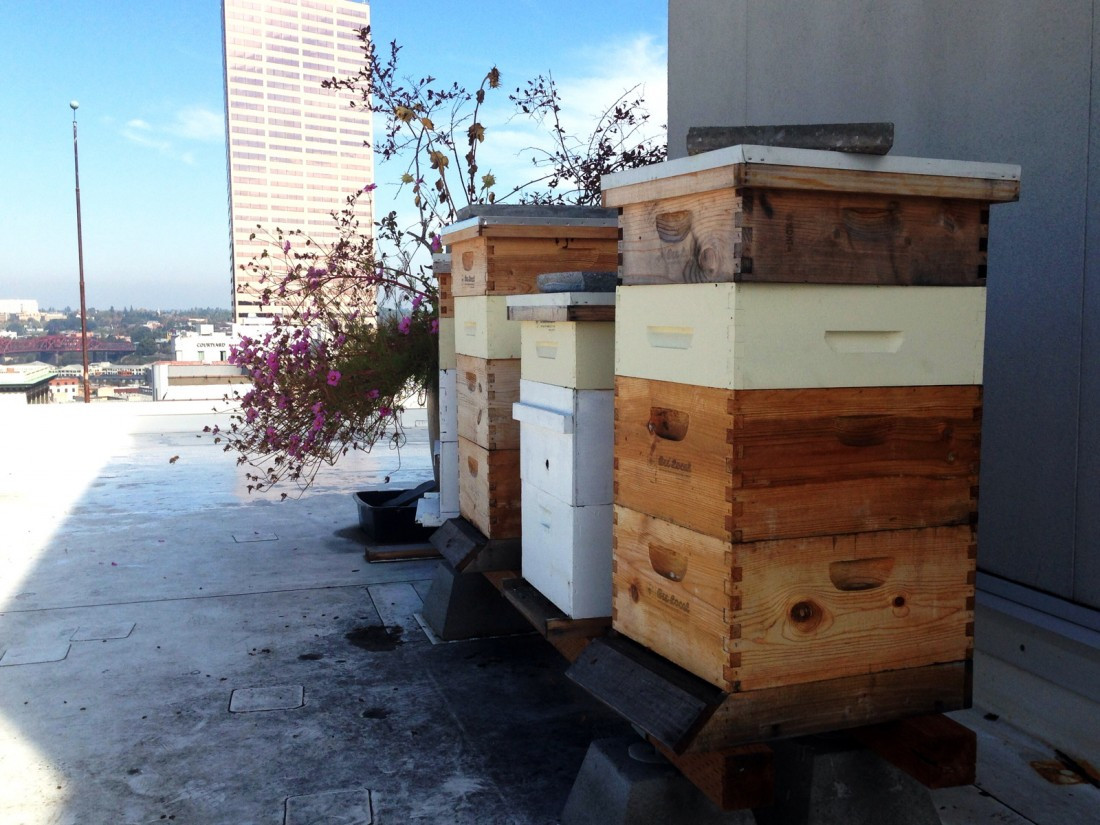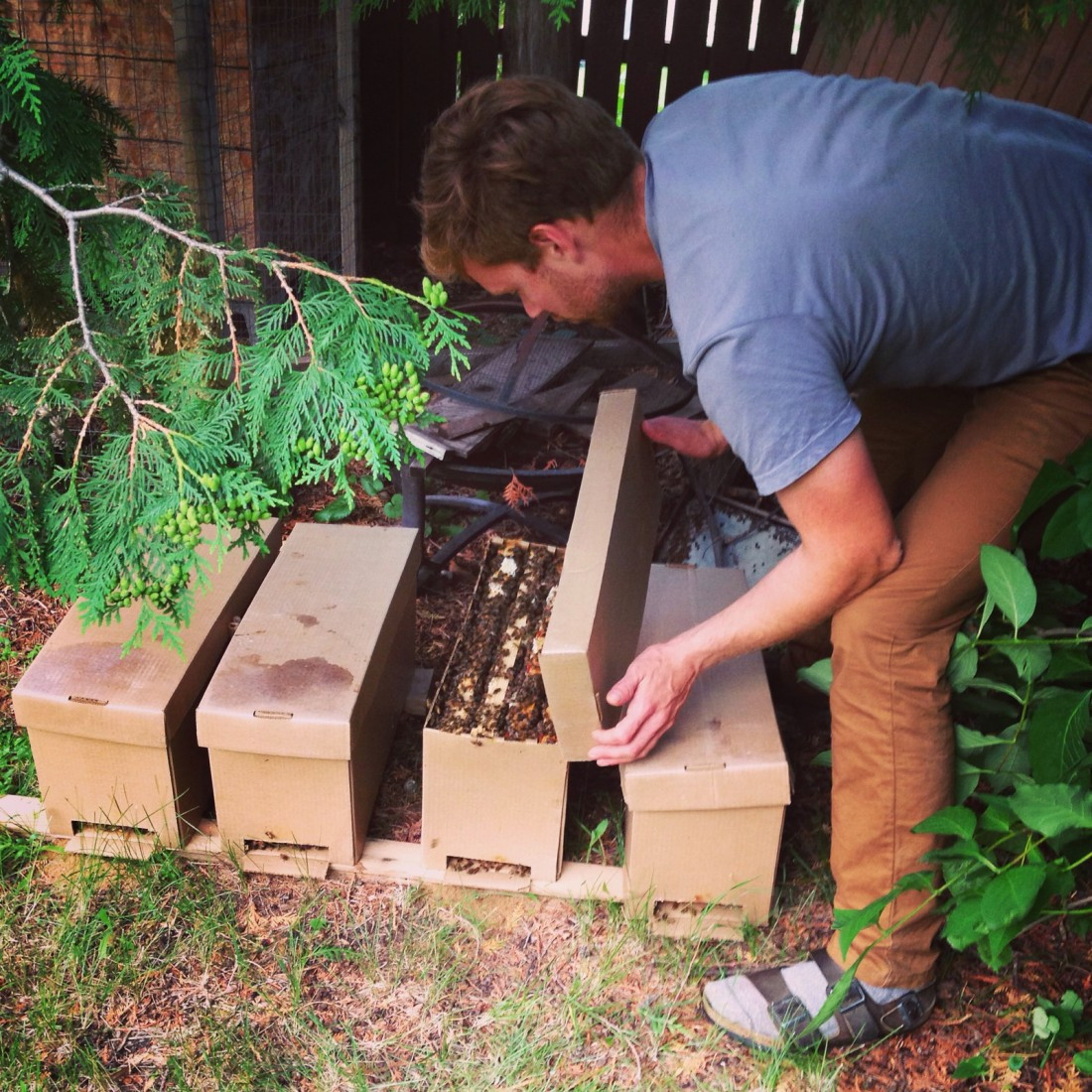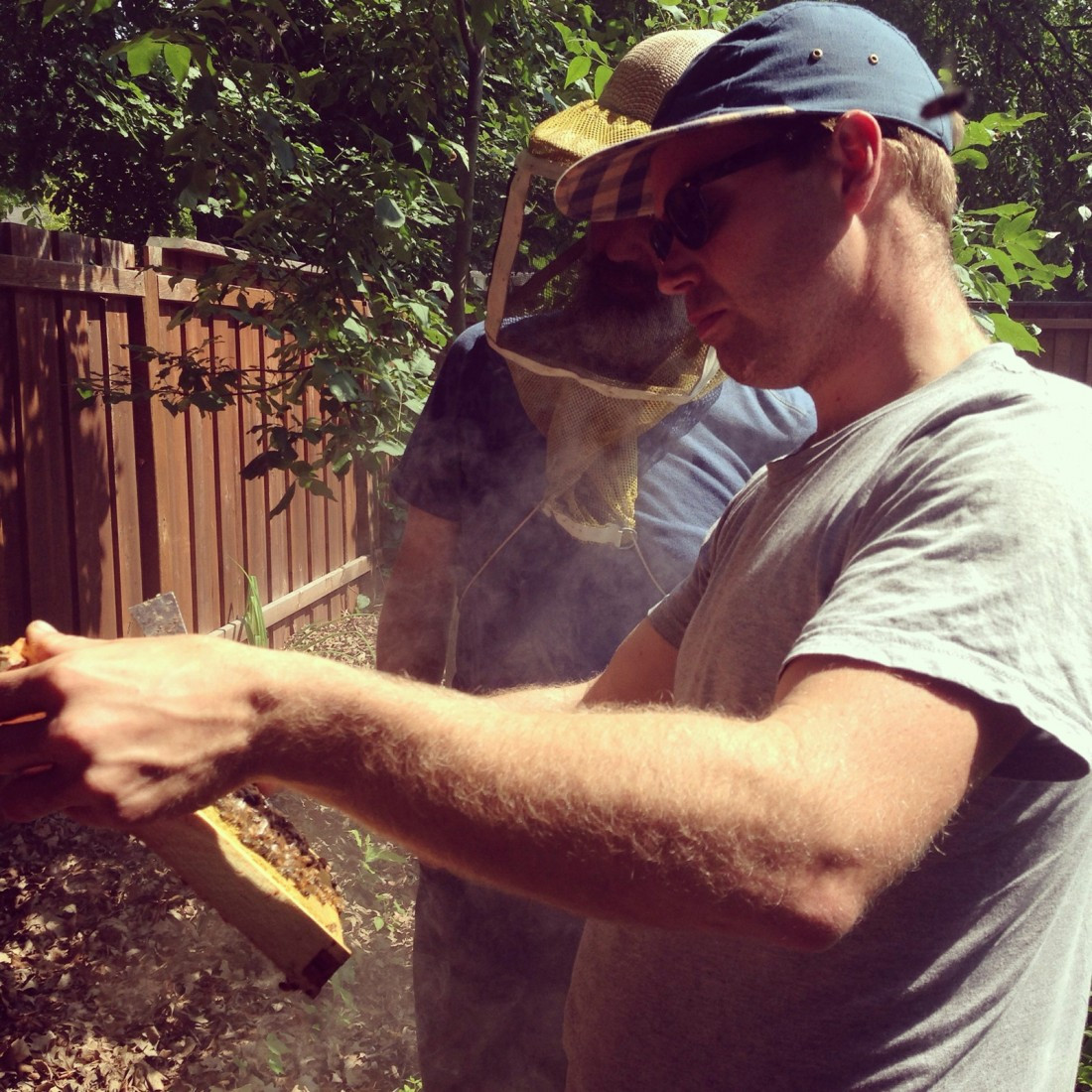Sweet deal
City could allow beehives on downtown rooftops
This summer, city councillors began looking at changing the current bylaw that bans beehives in urban areas, which has some local beekeepers buzzing.
“The bees disperse into the environment really well,” Chris Kirouac says.
Kirouac and his wife, Lindsay, haven’t had any legal issues with their urban hives. The couple have been secretly keeping hives around Winnipeg as part of the Beeproject Apiaries for five years.
Once you’re about nine metres away from a hive, Kirouac says you won’t notice the bees, even if you can see the hive.
Other cities like Montreal already allow urban beehives, he says.
“They’re doing a really good job of keeping the bees and the public is really enthusiastic,” Kirouac says.
In Winnipeg, bee colonies are currently banned under the Responsible Pet Ownership Bylaw.
The bylaw bans people from having commercial animals running “at large” in the community.
“For the purpose of this Part, a bee colony is running at large if it is swarming,” section 30(2) reads.
At a September meeting of the standing policy committee on downtown development, heritage and riverbank management, Coun. Jenny Gerbasi (Fort Rouge-East Fort Garry) says the committee decided to move forward with amending the bylaw for the downtown area.
“The request for this motion came from the Fort Garry Hotel,” Gerbasi says. The hotel wants to have hives so it can locally supply honey.
There are still several steps to take toward allowing bees on downtown rooftops, including a public hearing.
“I’m hoping to see that completed in time for spring,” Gerbasi says.
Currently, hives are allowed at educational institutions, including the University of Winnipeg, which has a rooftop hive on the Richardson College for the Environment and Science Complex.
“We’re hoping that the City of Winnipeg will really embrace it,” Kirouac says. “We’ve been really excited about the changing of the bylaw.”
Kirouac says he has many reasons to be excited, including the fact this next step could be good for the bee population.
In rural areas, one crop will cover acres of land, meaning there is not a diversity of food options for bees. But in the city, there are many different plants.
Downtown hives can also provide a local source for honey.
“It’ll open the possibility for businesses to work with beekeepers to introduce local honey,” Kirouac says.
Local hives also create a more accessible educational opportunity. Right now, when someone wants the Beeproject Apiaries team to teach them about bees, it involves taking a drive out to the country, which not everyone can manage.
Beeproject Apiaries would begin offering its services to do custom beekeepings, too, Kirouac says.
Visit beeproject.ca to learn more about local honey.
Published in Volume 70, Number 5 of The Uniter (October 8, 2015)









